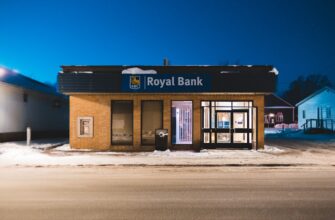- Introduction: Financial Privacy in a KYC World
- Why Consider KYC Alternatives?
- 4 Secure Methods to Protect Funds Without KYC
- 1. Non-Custodial Wallets (Your Keys, Your Crypto)
- 2. Peer-to-Peer (P2P) Trading Platforms
- 3. Privacy-Focused Cryptocurrencies
- 4. Decentralized Finance (DeFi) Protocols
- Critical Security Measures for Non-KYC Users
- Step-by-Step Beginner Roadmap
- FAQ: Protecting Funds Without KYC
- Is avoiding KYC legal?
- Can I convert crypto to cash without KYC?
- Are non-custodial wallets safer than exchanges?
- What’s the biggest risk with no-KYC crypto?
- How do I recover funds if I lose my wallet?
- Can governments trace non-KYC crypto?
- Conclusion: Empowerment Through Responsibility
Introduction: Financial Privacy in a KYC World
Know Your Customer (KYC) protocols require identity verification for financial services, but many beginners seek alternatives to protect funds without compromising privacy. Whether avoiding data breaches, valuing anonymity, or lacking formal identification, this guide explores legitimate methods to secure your assets while maintaining control. We’ll cover practical strategies, essential tools, and critical safety measures tailored for crypto newcomers.
Why Consider KYC Alternatives?
While KYC combats fraud, it introduces risks like:
- Data vulnerability: Centralized databases become hacker targets
- Privacy erosion: Permanent linkage of identity to transactions
- Access barriers: Excludes those without government IDs
- Censorship risks: Funds frozen based on geography or politics
Opting for non-KYC solutions prioritizes self-custody – where you control assets without intermediaries.
4 Secure Methods to Protect Funds Without KYC
1. Non-Custodial Wallets (Your Keys, Your Crypto)
These wallets never require ID verification. You alone manage private keys.
- Hardware wallets: Ledger or Trezor (offline storage)
- Software wallets: Exodus or MetaMask (free downloads)
- Paper wallets: Physical printouts of keys (air-gapped security)
2. Peer-to-Peer (P2P) Trading Platforms
Trade directly with individuals using escrow protection:
- LocalCryptos (supports cash payments)
- Bisq (decentralized, open-source)
- Hodl Hodl (non-custodial multisig)
3. Privacy-Focused Cryptocurrencies
Coins with built-in anonymity features:
- Monero (XMR): Untraceable transactions
- Zcash (ZEC): Optional shielded transfers
- Pirate Chain (ARRR): Fully private by default
4. Decentralized Finance (DeFi) Protocols
Access financial services via non-KYC platforms:
- DEXs like Uniswap for token swaps
- Lending through Aave or Compound
- Always connect via non-custodial wallets
Critical Security Measures for Non-KYC Users
Without institutional safeguards, implement these defenses:
- Seed phrase protection: Store 12-24 recovery words offline (never digitally)
- Multi-signature setups: Require multiple approvals for transactions
- VPN + Tor: Mask IP addresses during transactions
- Small test transfers: Verify addresses before large sends
- Hardware isolation: Dedicate one device for crypto activities
Step-by-Step Beginner Roadmap
- Download a non-custodial wallet (e.g., Exodus)
- Acquire crypto via P2P exchange or Bitcoin ATM (if no-ID option)
- Transfer funds to your wallet immediately
- Enable all security features (password, 2FA)
- Store seed phrase on steel backup or encrypted USB
- Use privacy coins for sensitive transactions
FAQ: Protecting Funds Without KYC
Is avoiding KYC legal?
Yes, in most jurisdictions for personal use. Regulations vary – always research local laws. Tax obligations remain regardless of KYC status.
Can I convert crypto to cash without KYC?
Possible via P2P platforms, Bitcoin ATMs with no-ID limits, or prepaid crypto cards. Larger amounts typically trigger verification.
Are non-custodial wallets safer than exchanges?
Yes, when properly secured. You eliminate exchange hack risks but assume full responsibility for key management.
What’s the biggest risk with no-KYC crypto?
Irreversible losses from user error (lost keys, wrong addresses). No customer support exists for decentralized solutions.
How do I recover funds if I lose my wallet?
Only your seed phrase can restore access. Without it, funds are permanently inaccessible – making backups non-negotiable.
Can governments trace non-KYC crypto?
Privacy coins like Monero provide strong anonymity, but Bitcoin transactions are pseudonymous and potentially traceable through blockchain analysis.
Conclusion: Empowerment Through Responsibility
Protecting funds without KYC places you firmly in control – but demands rigorous security habits. By combining non-custodial tools, privacy technologies, and disciplined practices, beginners can effectively safeguard assets while preserving financial autonomy. Start small, prioritize education, and remember: in decentralized finance, you are the ultimate security layer.








